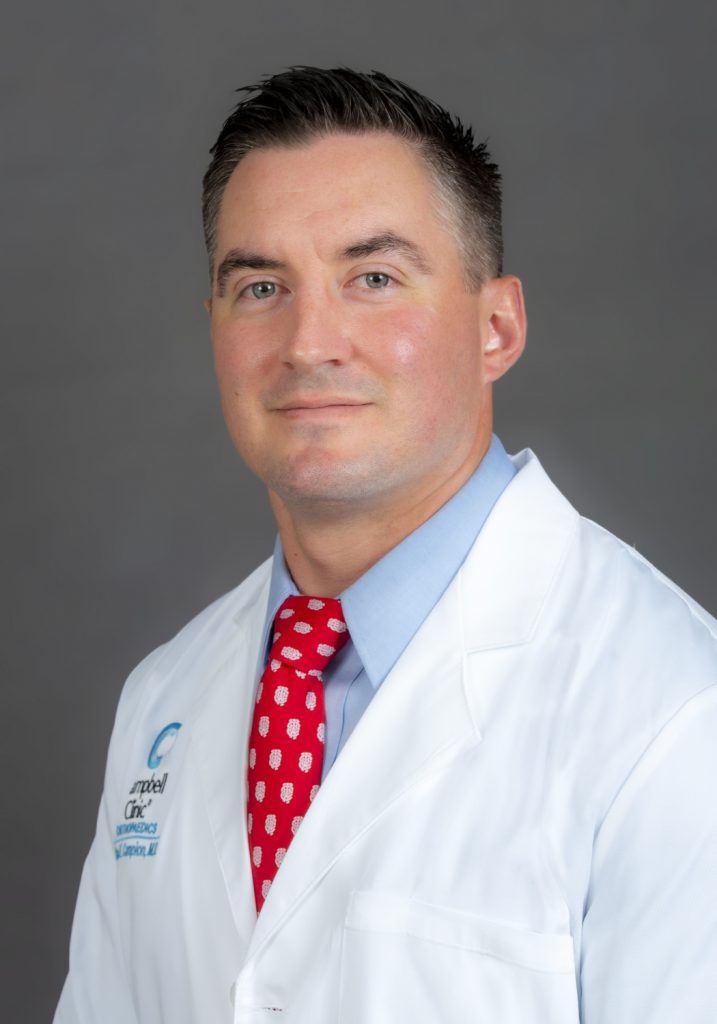Fellowship:
Spine Fellow, Norton-Leatherman Spine Center, 2020-2021
Board of Certification:
Dr. Campion – Intro
Background:
Dr. Chad Campion is a fellowship-trained spine surgeon with clinical experience in the comprehensive treatment of spinal disorders from the neck through the low back. He has clinical interests in minimally-invasive techniques, motion-preserving (non-fusion) surgery, adult deformity, and revision surgery, as well as the treatment of spinal tumors. Dr. Campion is also trained on the latest surgical techniques in spine, including the use of computer guided navigation and robotics.
Dr. Campion believes that surgery is the last option in the treatment of spine related issues and has a knowledgeable team he works with to provide the latest non-operative treatments. When surgery becomes the only treatment option, Dr. Campion believes the patient and their family should play an active role in the treatment team. This includes pre-operative optimization, immediate post-operative rehabilitation and long-term spine health. To accomplish this, he believes it is important that everyone on the team have a thorough understanding of the surgery, its goals, and the expected post-operative course.
Dr. Campion lives in Lakeland with his wife MK, a Collierville native. He and his wife both enjoy an active lifestyle of running, working out and golf. They also enjoy cheering on the Mississippi State Bulldogs during college football season. Their love an active lifestyle is one of the reasons why Dr. Campion focuses on helping his patients get back to the hobbies and lifestyle they enjoy.
Professional Societies and Academic Interests:
- University of Tennessee, Department of Spine Surgery – Instructor of Orthopaedic Surgery
- North American Spine Society
- American Academy of Orthopaedic Surgeons
Clinical Interests:
- Endoscopic Spine Surgery
- Robotic Spine Surgery
- Navigated Spine Surgery
- Minimally Invasive Spine Surgery
- Adult Scoliosis
- Herniated Disc/Disc Bulge
- Sciatica
- Cervical Disc Arthroplasty
- Kyphoplasty
- Compression Fracture
- Spine Tumors

